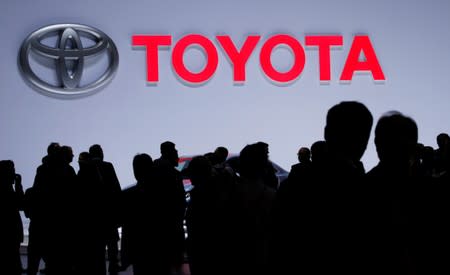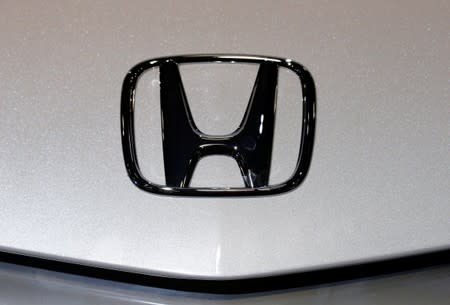China considers limited support for petrol-electric hybrids in boon for Toyota, Honda
By Yilei Sun and Norihiko Shirouzu
BEIJING (Reuters) - China is considering re-classifying petrol-electric hybrid vehicles so they get more favourable treatment than all-petrol or diesel counterparts under clean car rules, making it easier for automakers to meet environment quotas and offer more choice.
Global hybrid leaders Toyota Motor Corp and Honda Motor Co Ltd would be among the biggest beneficiaries of such change, which could allow them to make more hybrids and less of the more costly all-electric vehicles, experts said, after reviewing the draft policy proposal published on Tuesday by the Ministry of Industry and Information Technology.
China has some of the world's strictest rules regarding the production of greenhouse gas-emitting vehicles, as it battles unhealthy levels of air pollution in its crowded cities.
Those rules have pushed both domestic and international automakers to spend billions of dollars on the development and production of so-called new-energy vehicles (NEVs), such as those powered solely by electricity and hydrogen fuel cells, as well as plug-in hybrids.
Under a system that kicked in this year, automakers in China are obliged to make up for a portion of the "negative" points they incur when they produce internal combustion engine vehicles with points won for producing NEVs.
Though more fuel-efficient than petrol- and diesel-powered vehicles, hybrids, introduced in 1997 with Toyota's Prius, are currently classed alongside those powered by fossil fuels.
In the draft proposal, hybrids would still be considered fossil-fuelled but re-classified as "low fuel consumption passenger vehicles". Significantly, the number of negative points incurred for making hybrids will be less than for traditional vehicles.
That could see more of those traditional vehicles replaced with hybrids, experts said, because when automakers produce hybrids, they would have to make up for fewer negative points.
The proposed change came as a surprise, some experts and industry officials said, because the government has never given any preferential treatment for hybrid technology. Previously, the government offered subsidies for, for instance, the purchase of all-electric cars.
"The new proposed policy is a roundabout way to promote hybrid cars," Cui Dongshu, secretary general of China Passenger Car Association, wrote in a social media post.
Hybrid cars sold in China include versions of Toyota's Corolla, Levin and Camry sedans, and versions of Honda's Accord and CR-V. Beijing-based spokesmen for both Japanese automakers declined to comment.
Local automaker GAC Motor, which makes hybrids in partnership with Toyota and Honda, said it "keeps close attention to national policies and will actively respond to the promotion and development of relevant policies and standards."
(Reporting by Norihiko Shirouzu and Yilei Sun in Beijing; Editing by Christopher Cushing)

 Yahoo Finance
Yahoo Finance 

